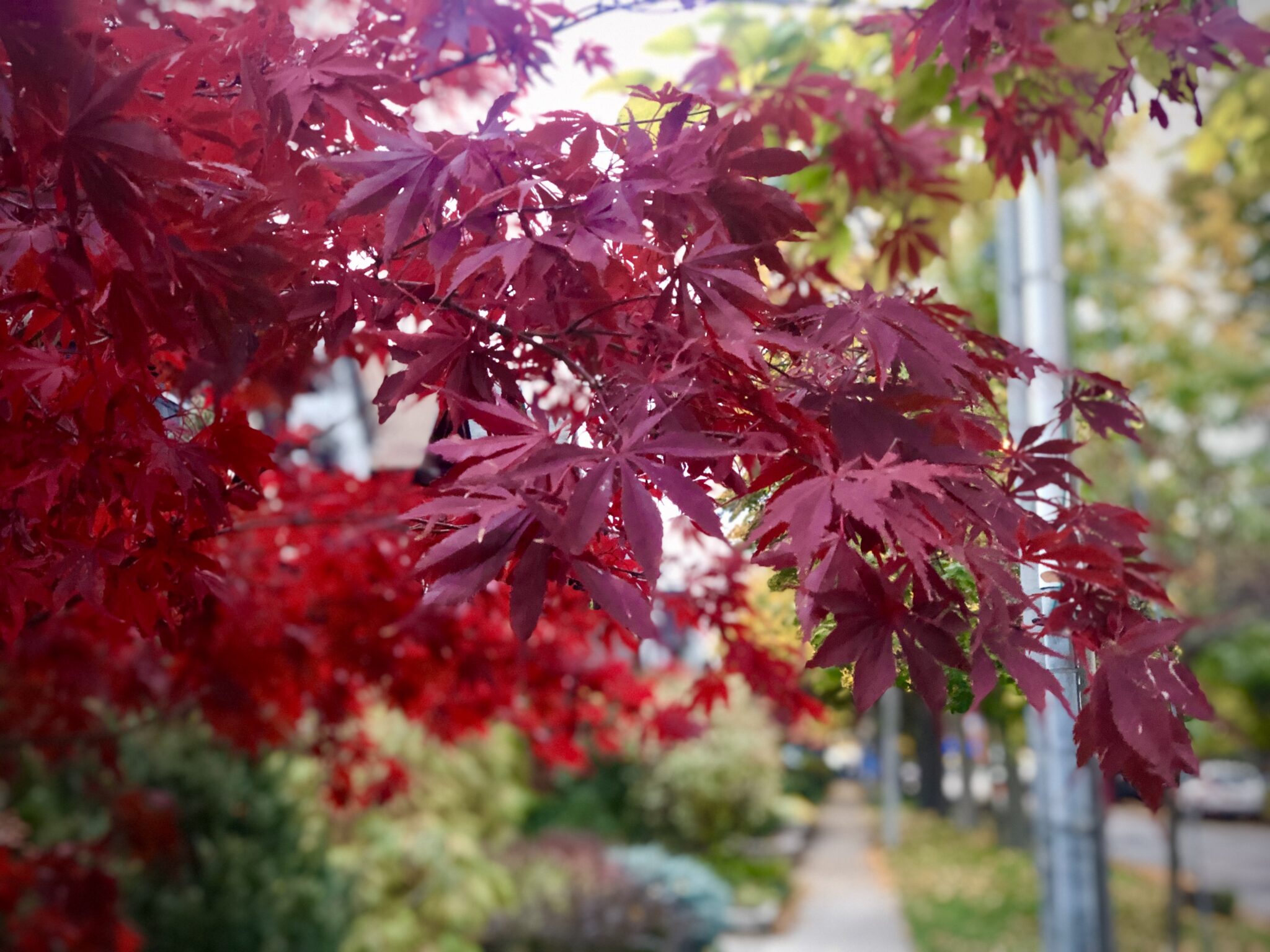Posts Tagged ‘change’
When Death is a Natural Part of Your Workplace
Post by Maureen Pollard, MSW, RSW
When Death is a Natural Part of Your Workplace
Staff and volunteers in hospice, long-term care facilities and hospitals know that death is a part of life. You typically witness death on a regular basis as part of your job. As a result, there are some important steps you can take to engage in self care and look after yourself when loss and grief are a part of the emotional landscape in your workplace.
Consider your personal experience of loss.
Self awareness is helpful as we reflect on events in our life, our personality and our actions. Think about family and friends who have died. Reflect on your grief. How did you feel? What did you do to honour the loss? Was there something that helped you cope with your grief?
Honour your relationships.
When death is part of your work, you become good at dealing with the practical aspects. Loss of life may be business as usual, and your training, skill and experience allows you to do what is necessary and then move to the next tasks. As a result, it can be surprising when a death happens that touches you. Remember that grief is really about relationship. It’s natural to feel more attached to some patients because of a personal connection that develops as you care for them over time or because they remind you of someone you love. When you have some relationship with the person who died, you’re much more likely to need a bit of time to process your grief.
Be aware of the impact of accumulation.
It may be that very few of the workplace deaths you encounter feel personal. As a result, you become very good at moving through the tasks of caring for the dying and coping with death. This is a normal development as you gain experience in the field. However, it may come to pass that you feel the weight of the number of deaths you attend to over time. This is also a normal occurrence. It’s as if each death is a rock you place in the backpack you carry. On it’s own, one rock is not too heavy to carry. Eventually a backpack full of rocks becomes impossible to lift. It’s important to have healthy ways to express your feelings and release these “rocks” now and again throughout your career.
Feel it, then heal it.
When grief comes to you, whether it is in your personal life or due to deaths you experience in the course of your work, take the time you need to mourn. Each death will bring a range of unique feelings. Some will take a long time to mourn and others will be a small diversion on your path. When you honour each loss according to the depth of love reflected in the relationship with the person who died, and take time to heal, it increases your capacity to carry on in your work as an excellent professional caregiver.
Ways to Mourn During the Pandemic
Post by Maureen Pollard, MSW, RSW
Ways to Mourn During the Pandemic
The restrictions related to the global pandemic are intended to slow the spread of covid-19. Physical distancing, the declaration of a state of emergency and rules to prevent gathering in groups also impacts our usual ways of coming together in bereavement.
It is customary for immediate family and close friends to attend for final visits if the death is expected. After death, there are many rituals, ceremonies and customs that involve gathering together to remember, honour and celebrate the person who has died. When you can’t gather to comfort one another, there are still many ways you can mark the death of a loved one.
Use Technology
You can schedule on-line video sessions using FaceTime, Skype, Zoom or other platforms to host virtual gatherings at times when the bereaved would normally be offered condolences and comfort in person such as a visitation, a wake, shiva or other mourning traditions. Similarly, it is possible to use livestream technology to invite family and friends to observe any private ceremony or service that is allowed for the immediate family. This technology has been available through funeral officiants in the past, and during the pandemic it has become a much more familiar experience as such technology becomes the only safe way to attend and offer sympathy and support in the immediate aftermath of a death.
Create Personal Ceremony
While it is customary to come together for a public, shared mourning through traditional gatherings, it can be equally meaningful to create private ritual and ceremony to honour your relationship with the person who died. You may choose to light a candle, recite a prayer or poem, listen to music that feels sacred to you in connection with the relationship or create art to express your feelings. You may choose to share images with others through social media, by email or text. You might create an audio-visual presentation to share with other mourners that tells the story of your relationship with the person who died. These personal expressions of grief and love, shared in community, may help create the feeling of connection and comfort that is usually found in traditional in-person gatherings.
Plan For the Future
This is a difficult time, and no one can say how long the restrictions will last. At some time in the future, covid-19 will be managed by the scientific and medical communities and the rules of physical distancing will be eased. While you wait for that time to come, you may find some comfort in planning a more traditional gathering of family and friends to honour and celebrate the life of your loved one once the situation evolves and it is safe to gather once more.
Loss Comes In Layers
Post by Maureen Pollard, MSW, RSW
When we experience death, it is often perceived as one-dimensional. A person died. We are sad and we miss them. That is grief.
Grief is much more complex than this perspective suggests. When someone we love dies, there are multiple aspects to the loss that impact our grief journey.
Of course, we do miss the person who died. When we love someone and we know that they will be absent from the rest of our lives, it does make us sad. It also opens our broken hearts to myriad other feelings, depending on the relationship.
When someone in our life dies, we may also lose our status or role as created by that relationship. When our parents die, we become an orphan. When our spouse dies, we become a widow or widower. The death of a child is so powerful that there is no similar word to identify the new role a bereaved parent takes on. With or without a special term for the new status, our role often changes with the death of someone so intimately connected to us.
In addition to this shift in roles, we may also face the loss of our community. This is especially true if our regular daily interactions revolved around our role in relationship to the person who died. It’s also true if the death means we have to move or change our living circumstances in some other significant way.
These losses are often accompanied by the disruption of our hopes and dreams; the vision we held for the future. It can feel as if we were building a jigsaw puzzle, with the image of the life we desired coming together. The death acts to toss the entire puzzle into the air. As it lands we find we are missing some pieces and in fact, we no longer have the same image to work toward. We have unfamiliar pieces and no pretty picture to match them to.
Death takes many things from us. We may lose a sense of safety, and come to realize how little we control in the world around us. We may lose our innocence and grapple with our faith.
But as we find our way through grief, we may also make gains. We may find comfort and love from unexpected corners of our world. We may find grace and forgiveness as we learn to hold ourselves with compassion while we learn to carry the weight of our painful loss. We may come to know that we are much stronger than we once believed, even as we learn to hold hope and joy for life at the same time as we make space for the pain and heartache of grief.
Kara – Starting a grief journey again
Kara – Starting a grief journey again
Kara explains how Covid-19 has made her have to relearn tools to help in her grief. The pandemic changed the way Kara continued to grieve the loss of her partner.
Matt – Grief changes
Matt – Grief changes
Matt explains how he deals with his grief. Matt continues to grieve the death of his birth mother.
Krista – “Changes”
Krista – “Changes”
Krista discussed what has changed since her son’s overdose. Krista continues to grieve the death of her son from opioid overdose.
Caitlin – “It’s hard work”
Caitlin – “It’s hard work”
Caitlin talks about dealing with grief. Caitlin continues to grieve the death of her sister in a car accident
Kara “It Changes You”
Kara “It Changes You”
Kara tells her story and explains how things have changed on her journey. Kara continues to grieve the death of her partner.
Kara – “You change”
Kara – “You change”
Kara discusses evolving, growth and change. Kara continues to grieve the death of her partner.
Kara – “Going on alone”
Kara – “Going on alone”
Kara talks about how you change. Kara continues to grieve the death of her partner.
Jeff – “Change”
Jeff – “Change”
Jeff reflects on the ebb and flow of grief during the healing process. Jeff continues to grieve the death of his mother.
Keith – “Hope”
Keith – “Hope”
Keith talks about time, healing and hope.



